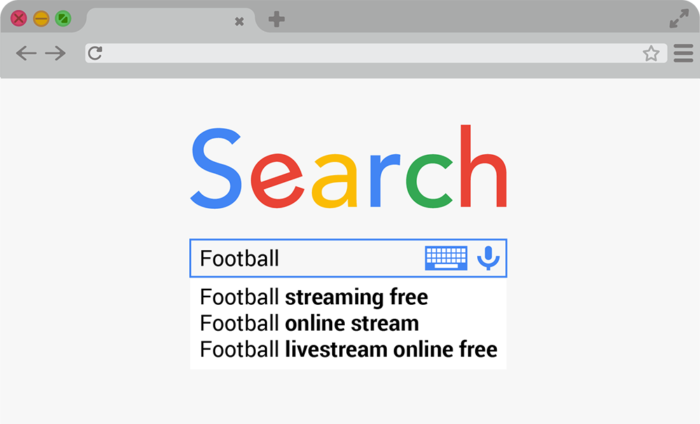Published Date: 07-03-19
We’re Americans. We love sports. We get all wrapped up in the players on the field, or the court, or the ring, and we totally forget about the thousands of people who work behind the scenes to make our most exciting and treasured sports moments a reality. There are over 450,000 people who work in the American sports entertainment industry – from your favorite player to the cameraman bringing the home run, or touchdown, or goal to your living room.
Now, pick a sport, any sport – from the NBA playoffs to NCAA women’s golf. If it’s televised, there’s almost definitely an illegal stream for it, and one of near-perfect quality. Gone are the days of choppy video or untimely lagging. The pirated sports streams of today are perfect with minimal lag time, often featuring a video feed so clean and clear that it can be difficult to distinguish them from the legitimate source.
Pirates who have mastered the art of making their stolen goods look legitimate are nothing new. And, there are multiple ways to commit this crime. One way, is with devices like the “fully-loaded Kodi box” – which serve up vast bundles of pirated film and television offerings (including sports) with an on-screen user interface that looks just about as beautiful as Roku, Apple TV, or any other name-brand offering.
But, Kodi is not the only way to watch sports illegally. With sports piracy, anyone with a laptop and an internet connection can pull up a free live stream of their chosen game within seconds – by simply entering a few search terms into Google.

“Consumer knowledge of what’s authorized and what isn’t is eroding,” Yahoo! Sports’ Henry Bushnell wrote in a recent article about illegal sports streaming. “Fewer patrons care. More are willing to take the risk.”
One telling statistic Bushnell cites, from the piracy data company MUSO, posits that “humans made 362.7 million visits to sports piracy websites” in January 2019 alone.
It’s difficult to calculate lost revenues from sports piracy, but one firm, Ovum, estimates that it’s around 16% of all digital television and video earnings – or, about $37.4 billion per year.
That’s a lot of money, and that’s not just out of the pockets of a few big-name athletes or sports leagues. It also hits the hundreds of thousands of people who are working tirelessly to make your sports viewing experience the best it can be.
What can be done? Well, to begin with, Google – with its dominant search engine and dominant YouTube video platform – could do more to clean up its act.
First, Google could de-index the search results leading to illegal sports streams.
Second, Google could also do more to suppress sports streaming piracy on YouTube. Around certain big sporting events, such as NFL Sundays, YouTube becomes rife with illegal game streams. Many get taken down within minutes, but not before attracting “thousands of viewers,” reports CNBC. Following each takedown, new streams pop up wantonly, in an endless game of “almost live whack-a-mole.” The pirated feeds “were made easier to find thanks to the search software,” CNBC reports. Entering the letters “nfl” prompts YouTube’s search box to suggest similar, pirate-friendly phrases such as “nfl live streaming.” Click there, and your choices, of course, include numerous pirate sites. Unbelievable.
Compared with, say, rooting out the participants in a vast global network of brazen sports bootleggers, this seems like a relatively simple fix. If Google can de-index search results, as they’ve done before for other reasons, they can do the same thing with sports. Why haven’t they? It’s the Google business model again, which depends on helping people searching for anything and everything, regardless of its legality.
Sports piracy is out of bounds. Google should do more to stop it. #StandCreative



